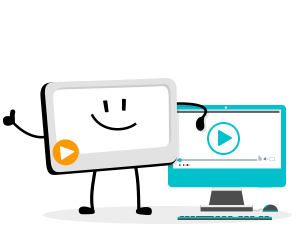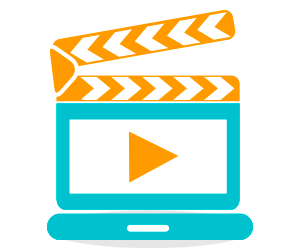Why Understanding Your Audience Is the Key to Creating Great Video Content?
Whether we like it or not, our attention spans are getting shorter. Although we spend hours scrolling through our social media feeds, reading long walls of texts might seem like a lot of effort. As a result, companies of any size tend to communicate with their customers using video content, increasing the chances that the information will get through to the audience.

However, it doesn’t mean creating a video that will successfully convey the intended meaning is particularly easy. Although there are some universal trends in the world of digital marketing, you need to know who your audience is before you craft a video that will properly address any questions that they might have.
Why Should You Create Video Content?
You might think that creating a blog post instead of a video could be a better idea, and you might even be right. If the message that you want to convey is short and simple, making a video out of it could be unnecessary. However, in some situations, video content could be of much greater value to your audience.

If your company is introducing a new product, a video tutorial would be preferable, as it would show exactly how to use it. It doesn’t matter if it’s a software or a mobile phone – you wouldn’t be able to convey the same amount of information only through a piece of text. Even if you provide precise instructions, there will always be people who’ll get lost pretty quickly. If they had access to a video, they could simply rewind it.
Remember that excellent video content is highly shareable, meaning that it could be an excellent way to attract new customers to your website, alternatively, you could rely on the services of The Search Initiative or other SEO companies.
On the other hand, if your company is in the middle of a PR crisis, or for whatever reason you have an important message for your audience, having a high ranking company official record a video would be more efficient than if you were to publish a post on your social media page. That’s because people are more likely to trust your brand when there’s an actual person speaking to them; they don’t see the face of a person that is posting updates on Facebook or Twitter.
Why Understanding Your Audience Is Essential to Creating an Efficient Video
However, even if you know what type of message you want to convey, it doesn’t mean that you are ready just yet to start recording a video. In the world of digital marketing, one size does not fit all, meaning, you have to learn more about your audience before creating specifically tailored content to match their expectations and preferences.

If you want to create a useful video tutorial, you need to know what level of knowledge your audience possesses. Let’s say that you want to record a short video to encourage people to learn how to code while accentuating the expected shifts in the job market in the near future.
Before you begin this project, you need to know the knowledge levels of your audience. Suppose your followers don’t have a background in programming and aren’t particularly internet-savvy. In this case, you’ll have to use a simpler language, explaining the basics at the beginning of the video before proceeding to more complex concepts.
What is the best way to learn about your followers, so the video wouldn’t come off as being mismatched to your audience? Well, there are several ways that you could proceed with this task. If you don’t want to do everything online, you could schedule some one-on-one interviews. This way, you would receive in-depth answers that would be more valuable than the ones that you could expect to get through online surveys.
However, if you want to go the extra mile, you could make use of video analytics tools. The qualitative data would be extremely helpful, by knowing the exact percentage of your followers on social media that are from a particular country or have a specific level of education would help you to get a proper understanding of what your audience is really like.
If your audience quits your videos at a specific moment, and you don’t even have a chance to convey your main points, you should consider what could be the reason. Perhaps your video content is simply too long, and the same message would fit into a 2-minute video.
Alternatively, the video might have a tone that could come off as being not serious enough, or if your target audience is younger, the solemn voice of the narrator could prove to pose the opposite problem. The easiest way to discover what the culprit is would be to simply contact your viewers directly, which would help you avoid making the same mistakes in the next video.
If your video content is really useful, people will be more likely to share it on social media and your marketing team won’t have to spend so much time on outreach, as people will be eager to share your posts by themselves.
Conclusion
The competition for the attention of internet users is fierce, though it hardly comes as a surprise. Facebook has 2.7 billion monthly active users, making it a perfect platform for the promotion of brands and businesses. However, although it could easily become a fertile ground for your marketing strategy, you need to know more about the people that you are trying to reach.
This way, you’ll be able to craft great content that will help your audience and nothing will increase the shareability of your video as much as making the lives of others easier. We hope that after reading this article, you now know why learning about your audience is key to creating great and shareable video content.
Author’s Bio

Robert – an avid traveler with interests that include perusing obscure books about economics and recreating dishes that he had encountered on his voyages. Might be occasionally seen surfing, though calling him an amazing surfer would be far from the truth.
